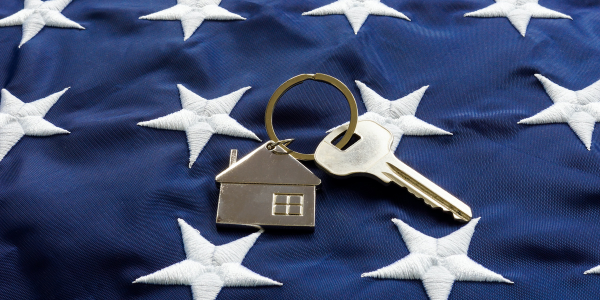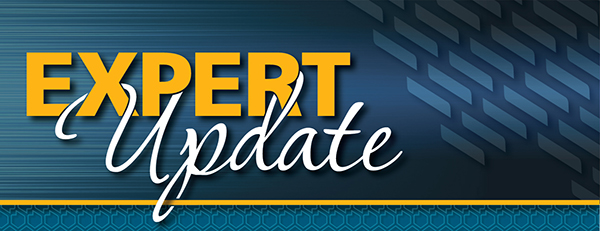If you or a loved one has served your country and are now looking to buy a home, you may be wondering if you qualify for a VA loan. And for good reason! VA loans offer tons of benefits, like no down payment requirements, no monthly mortgage insurance, and flexible underwriting guidelines. In this article, we’re answering the six most commonly asked questions about VA loans in an effort to help determine if VA home financing is right for you.
First, let’s tackle who qualifies for a VA loan. You can obtain a VA loan if you are an active-duty service member, veteran, or surviving spouse of a veteran. Those who qualify will receive a Certificate of Eligibility (COE) that they can show to their lender as proof of VA eligibility.
1. Are There Closing Costs Associated with a VA Loan?
As with many loan programs, VA loans do come with some of the standard closing costs and fees. These include fees you’d see on most loans, including the cost of appraisal, title search, title insurance, recording fee, and other lender fees.
One fee that is specific to VA loans is the VA funding fee. This one-time fee is paid directly to the VA to help keep the loan program going. The size of the VA funding fee depends on a few factors.
For first-time use, the funding fee is set at 2.3% of the total amount borrowed. The funding fee increases to 3.6% for borrowers who have previously used the VA loan program but can be reduced by putting money down. Veterans who are deemed to be more than 10% disabled are exempt from this fee.
There are a few ways you can avoid paying the VA funding fee out of pocket. You can negotiate to have the seller pay this fee, or you can roll the funding feed into your mortgage and finance it over the life of the loan.
2. What Credit Score Is Needed for a VA loan?
Credit score requirements are one of the biggest worries for many homebuyers, but are you ready for some good news? There is no credit score requirement for VA loans.
As exciting as this is, remember that although the VA loan program doesn’t set a minimum credit score, individual lenders do. It’s also important to keep in mind that the better your score, the better your interest rate and loan terms will be.
3. How Many Times Can I Use My VA Home Loan Benefit?
As many times as you like! There’s no limit on how many VA loans you can take out throughout your lifetime. The only caveat is that VA loans must be used only to purchase or refinance a primary residence. In addition, your entitlement—the amount the VA is willing to guarantee for your loan—is finite. Once you’ve used it up, you cannot take out another VA loan without restoring your entitlement.
Normally, you’d have to sell the home that is financed under the VA loan to restore your entitlement. However, the VA offers a one-time entitlement restoration for individuals who have paid off their VA loan but still own their property. This perk can be used whether the loan was paid off entirely or refinanced into a different loan, such as a conventional loan.
4. Can I Have Two VA Loans?
You sure can! VA loans are technically used for primary residences, but primary residences change all the time—especially for active service members. For example, you can use a VA loan to buy your primary residence, and then, if you receive PCS (permanent change of station) orders and move, you can take out another VA loan to purchase your new primary residence as long as your entitlement covers both.
The best part about having multiple VA loans is that you don’t have to sell your old home. You can use it as a rental property and earn supplemental income, while your original VA loan remains intact.
Naturally, you will have to qualify for the VA loan again. You may also be limited in how much you can borrow the second time around, depending on your VA loan entitlement, which is the amount the VA will pay your lender should you default on your loan.
5. Can I Use a VA Loan to Buy Land?
A VA loan doesn’t technically allow you to purchase land straight out, but it does allow you to buy land that you plan to build on. So you can use a VA loan to buy land if you finance the costs associated with that land and the construction of your new home at the same time.
You could also finance the cost of the land through another type of loan, and then use a VA loan to fund the construction of a home that will sit on that land. Your third option is to finance both the cost of the land and the construction of the home through other means, such as a short-term construction or bridge loan, and then refinance into a VA loan once the home is built.
6. Can I Refinance a VA Loan?
If you’ve stuck with us up to this point, you’ve probably gleaned that, yes, you can refinance a VA loan. You can obtain a VA-backed cash-out refinance or an interest rate reduction refinance loan (IRRRL).
While the VA IRRRL loan is a streamlined process that requires less paperwork on behalf of the borrower, you will need to supply the lender your COE. For a cash-out refinance, you will need to provide most of the requisite paperwork that comes standard for home financing.
And closing fees do apply, including the VA funding fee. With this in mind, it’s always a good idea to consult with a trusted Loan Advisor to make sure the terms and cost of refinancing are worth it and will save you money in the end.
Santa Clarita mortgages lender American Family Funding can help you fulfill your dream of home ownership. A highly rated Santa Clarita mortgages lender, American Family Funding maintains a focus on community involvement and a commitment to giving back whenever possible. A friendly mortgage advisor will make the first time homebuyer experience an easy and stress-free experience — even with bad credit or a low down payment. The Santa Clarita home loan officers at American Family Funding also specialize in VA loans, reverse mortgages, refinancing and the STAR Loan Program.



